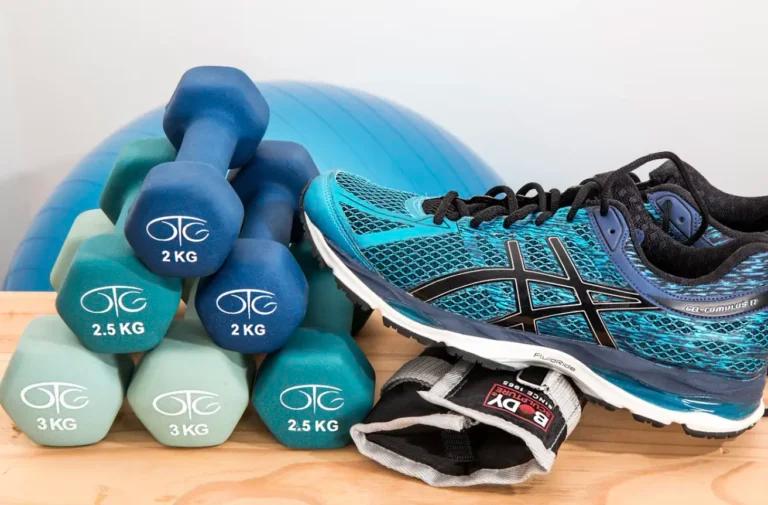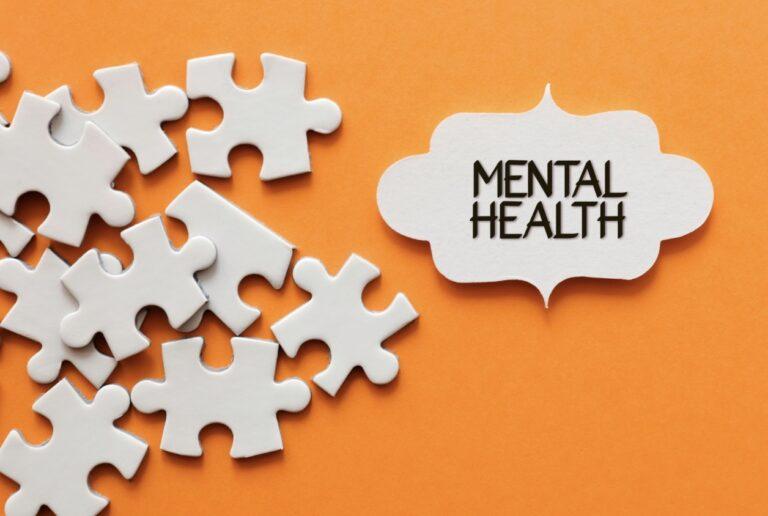
Everyone deserves to live with good mental health. However, us men usually aren’t as good at taking care of our mental wellbeing as we should be. We don’t talk about mental health problems enough and too few of us seek help for them. We need to change that.
We’re doing our bit to help change things by talking more openly about men’s mental health. Here, we’ll explain how you can take care of and improve your mental health with exercise.
What is mental health?
Physical health is the health of your body, and mental health is the health of your mind.
If you’re physically healthy, you can meet the physical challenges life throws at you, and your body doesn’t hold you back from living the life you want. The same is true for mental health. Good mental health means you have positive thoughts and emotions most of the time. This means you can form and develop relationships, be productive at work, and cope with stress. It also means you can live up to the demands and obligations of your life and ultimately take pleasure from it. If you have poor mental health, you can struggle with all of these things, and it can take a serious toll on your life.
The effects of exercise on mental health?
There are lots of ways you can improve your mental health, from getting therapy to taking medication. However, research has shown that mental health and exercise are related.
Exercise isn’t just beneficial for your physical health, it can improve your mental wellbeing too. Science has shown that regular exercise can help reduce anxiety and depression, and it may be as effective as antidepressant medications for mild to moderate mental health disorders (but with fewer side effects!). It’s thought that exercise helps with mental health by:
- Changing your brain chemistry – exercise can make your brain release more of various brain chemicals that improve your mood, like endorphins and serotonin
- Improving the flow of blood to your brain – which increases how much oxygen your brain receives, and in turn, helps to improve your mood and thinking
- Reducing stress – exercise is thought to dampen activity in regions of your brain that are activated by stress, like your amygdala
- Helping you sleep better – exercise can help with any sleep problems you have, which also has benefits for your mental health
- Increasing your energy levels – which are often reduced if your mental health is suffering.
- Giving you a focus and a sense of achievement – exercise can distract you from your problems and help provide you with goals and a sense of achievement. It can also improve your self-esteem
- Helping you socialize – some types of exercise will get you interacting with other people, which can help with your mental wellbeing too
How does exercise help anxiety?
Exercise can reduce anxiety and help improve your mental health in a range of ways. It can cause your brain to release chemicals that improve your mood, like endorphins and serotonin. Exercise can ease stress, help you sleep better, increase your energy levels, get you socializing, and give you a goal to work towards as well as improving your self-esteem.
What sort of exercise is best for mental health?
So, what activities are good for mental health? Most of the research on exercise and mental health focuses on aerobic exercise. This is an exercise that gets you breathing harder and faster and gets your heart rate up. Examples include running, cycling, hiking, playing football, boxing, and martial arts.
The truth is, there’s no single best exercise to improve your mental health. As long as it gets your blood pumping, it should help. The best exercise is really one that you enjoy and that you’ll stick with. If you find exercise fun, you’ll keep exercising. If it’s a chore, you won’t. So, if five-a-side football is your thing, play five-a-side football. If you love to run, then run. If you can’t get enough of line dancing, then line dance away.
How much exercise should you do?
In the US, the government recommends you do at least 150 minutes (2 hours and 30 minutes) to 300 minutes (5 hours) of moderate-intensity exercise a week.
You can break this down however you’d like, but 30 minutes of exercise five days a week is a good target to aim for. If you’ve not exercised for some time, this should be a goal to build up to not something to try and attempt right away.
How to get started
It can be hard to start exercising, particularly if your mental health has taken a hit and you’ve not exercised for some time. Trust us, we know. But this advice may help you begin and help ease you into a lasting exercise routine:
- Find an exercise you enjoy and think you can stick with – we’ve already said the best exercise is an exercise you enjoy, but you need to think about the specifics of your situation. If going outside is holding you back, exercise at home. If you need someone to keep you on track, find a friend who can hold you accountable. If you want to be part of a group, search for a local running group or exercise classes or clubs
- Set yourself concrete goals – specific and realistic goals can help you stick with exercise. You could set them on Monday morning. You could promise yourself something like, “I’m going to run for 10 minutes, five evenings this week”. The more specific, the more likely you are to hit your goal
- Start slowly – start out gently and build up gradually. This reduces your risk of injury and makes exercise goals more achievable. If you throw yourself into a tiring 30-minute run right away, you’re unlikely to do so for long
- Be kind to yourself – if you have to start with the gentlest of exercise, then start with the gentlest of exercise. If you have to build up slowly, then take your time. If you miss a day, a week, or longer, don’t give up. Exercise again when you can. Don’t be too hard on yourself – as long as you exercise most of the time, you should see the benefits
Mental health is something we all need to take seriously, and exercise can be a great help (it does a lot for your physical health too).
Although the mental health benefits of exercise can be substantial, if you’re suffering from mental health problems, exercise alone may not be enough. You should talk to your doctor about other treatments. You can also find support online through organizations like Movember or government resources.
Sources
NowPatient has taken all reasonable steps to ensure that all material is factually accurate, complete, and current. However, the knowledge and experience of a qualified healthcare professional should always be sought after instead of using the information on this page. Before taking any drug, you should always speak to your doctor or another qualified healthcare provider.
The information provided here about medications is subject to change and is not meant to include all uses, precautions, warnings, directions, drug interactions, allergic reactions, or negative effects. The absence of warnings or other information for a particular medication does not imply that the medication or medication combination is appropriate for all patients or for all possible purposes.










